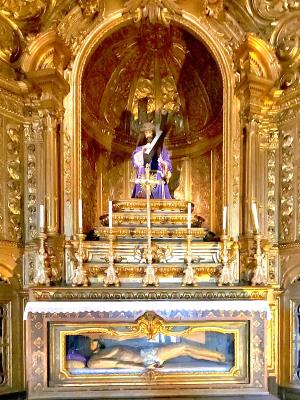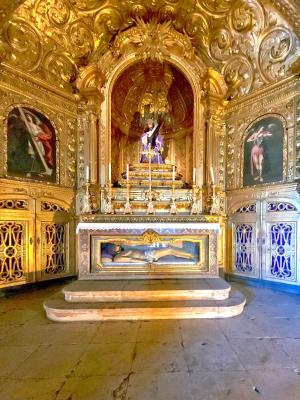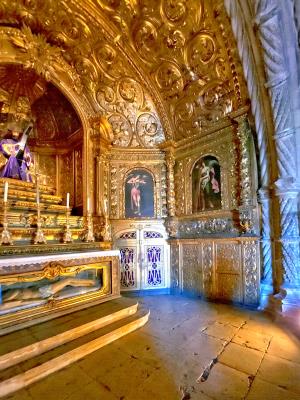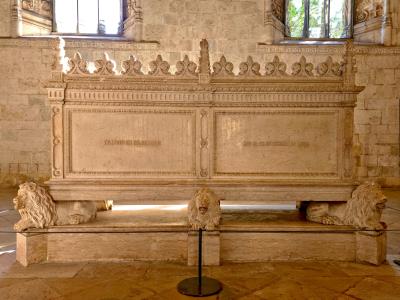Days 10 - 11 8/17 - 8/18/2023
Portugal - Lisbon
Frank's Trip
CLICK on any image to enlarge - use mouse cursor to move enlargement it if doesn't fit area

The Most Popular Place...
The number of people visiting this World Heritage Site is just phenomenal! The first day I came here in the early afternoon the line was well over 900 feet long. I spoke to some of the guards and understood that meant well over 2 hours and probably 3 before I would get in - AFTER I got a ticket. By that time, there would be very little time to see anything inside. I haven't seen lines like this before. PLAN B: Go back early next morning with ticket in hand (on phone, actually) and get a spot in the very front of the line.
I arrived an hour before opening and there were maybe 30 or so people ahead of me. But people were steadily arriving behind me and within 15 minutes the line was MUCH longer and it continued to grow quickly and steadily. By the time I got into the Monastery and then into the Church (new line - but not that many people visiting the church) it was getting to be a longish day already.
The next day (18th) I just had to take the day off and rest. That worked well because I planned to take the early train to Sintra the next day to visit 2 places there which I hadn't had the time / energy to visit while I was staying there.
 Jeronomos Monastery
Jeronomos Monastery
Completed in 1601, it took a century to build this stately, mind-numbingly beautiful church and monastery. Its architecture is known as the Portuguese Late Gothic Manueline. This, and other important features, made it a UNESCO World Heritage Site in 1983.
Originally in the place where the Monastery now stands, there was a chapel, the Hermitage of Santa Maria de Belém, where great navigators such as Vasco da Gama and Pedro Álvares Cabral would say their prayers before setting out for the sea.
Jeronomos Monastery is one of Lisbon's most important religious buildings exemplifying the opulence and might of 16th Century Portugal. The incredible riches amassed from the spice trade and gold funded the 100 year long construction of this mighty monastery.

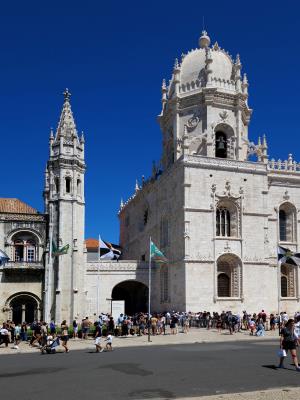
Monastery and Church Entry
The entry for both the Jeronomos Monastery and the Church of Santa Maria is in the same place. There are 3 separate lines for entry: There is a line for entry to the Church, which does not require a ticket - it is free. There are 2 lines for entry to the Monastery for people who have their tickets. Entry to the Monastery begins at 9:30 AM. One line is for tour groups from 9:30 to 10:30 and a group at a time is first allowed entry through that line to the Monastery. After one group enters, a number of individual ticket holders from the second line are allowed entry. Entry alternates between individuals and groups until 10:30. After 10:30 everyone must enter through the individual entry line. By 9:30 the individual entry line is already very long and a wait of at least 2 or more hours should be expected.
For those without tickets, there is another line to purchase tickets - THEN on to wait in the line for those with tickets. Tickets need to be purchased in person a day ahead of time or online to avoid spending a whole day here.
Whether for the Church or Monastery, people are admitted a number at a time to avoid having huge crowds inside either at any given time. Once inside, there is no time limit or rush to leave.
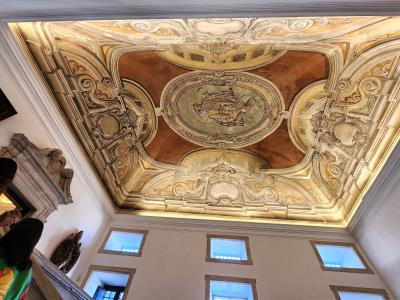
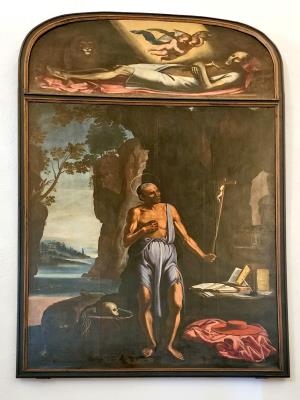
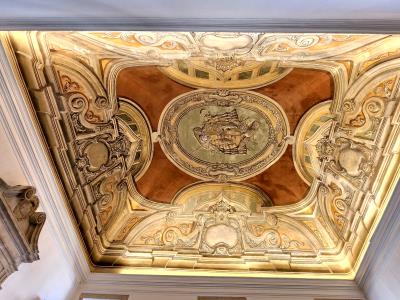
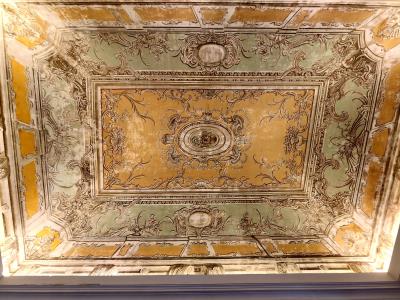


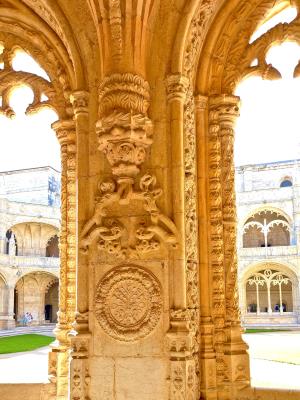
In the Monastery...
Entry to the Monastery is up a wide and beautiful flight of stairs to the second floor. Atop the first flight of entry stairs is a 17th Century painting of Saint Jerome while he was a hermit in the Syrian desert. One proceeds to a couple of lovely rooms with beautiful ceilings. Visiting the Monastery is all about experiencing the beautifully laid out two story cloister of the monastery. The architecture and amazing decorative ornamentation and symbolism are breath-taking and are the primary things for the Monastery visitor to enjoy. It takes about an hour to go through the Monastery.

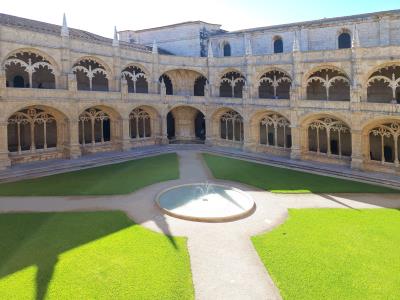




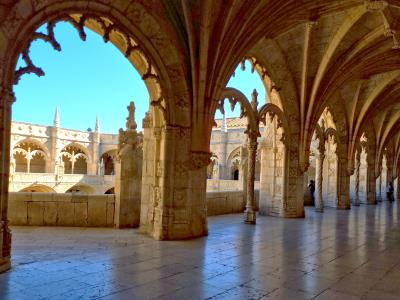

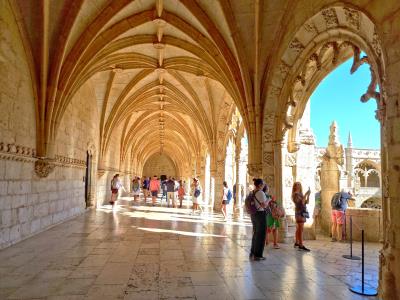
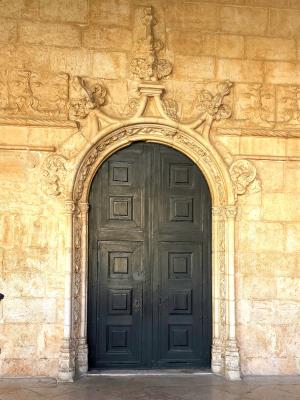
<<< LEFT: Door to one of the confessionals
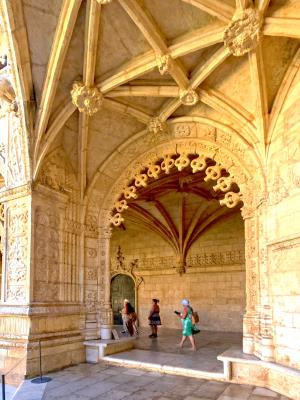
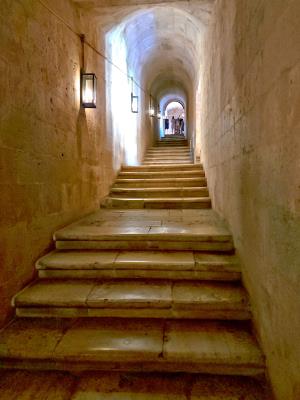

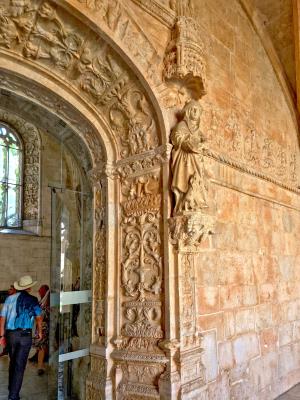

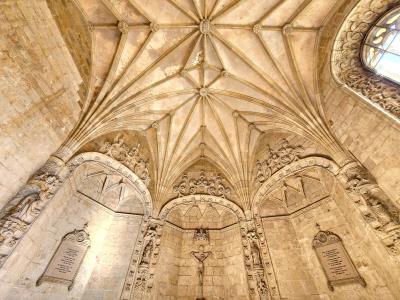
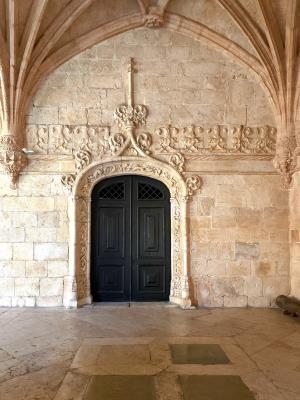
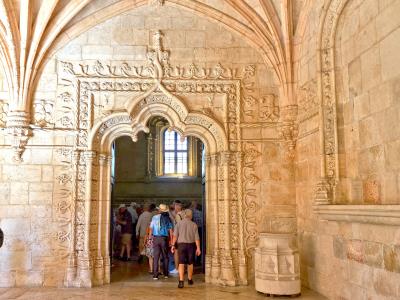
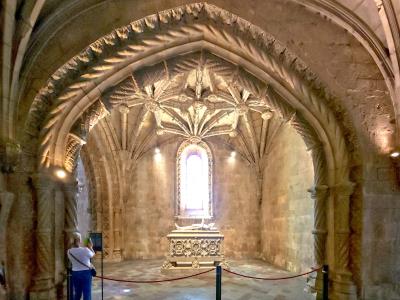
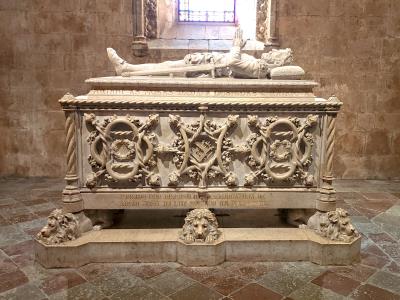



Tomb of Alexandre Herculano - writer, poet and historian and holder of several important official posts.
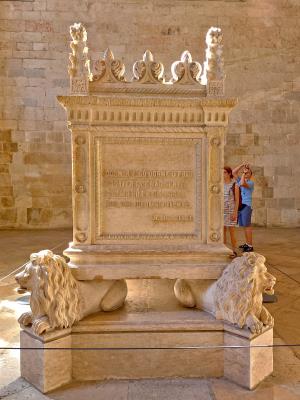
Refectory
The refectory portion of the monastery was built around 1517. The walls beneath the fan vaulted ceiling was decorated with 2 levels of thick "ropes" in the stone. Between 1770 - 1785 the lower portion of the walls were covered with tiles decorative elements and narrative scenes.

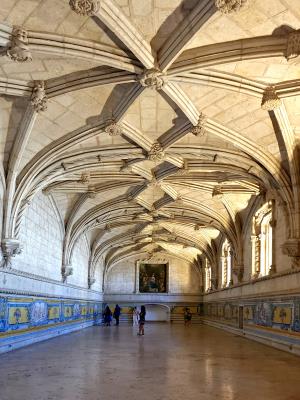
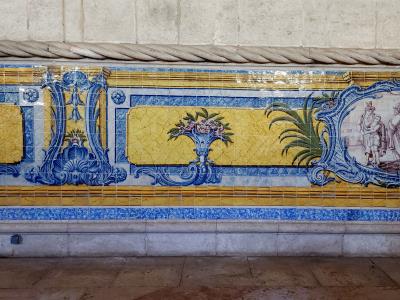

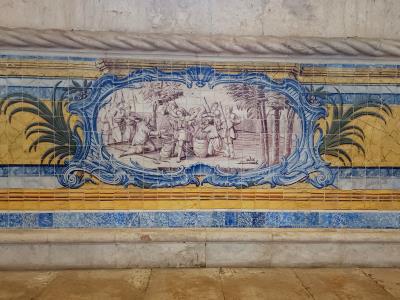

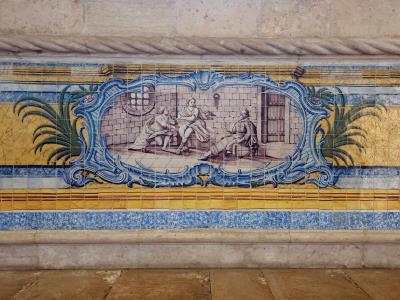

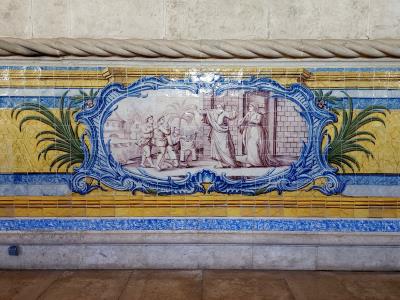
 Igreja de Santa Maria de Belem
Igreja de Santa Maria de Belem
The Church of Santa Maria is unique in the world. It is completely different from the rest. The temple has a single nave that is held up by six beautifully sculpted columns and the church seems to go on forever. This was one of the relatively few buildings that withstood the 1755 earthquake.
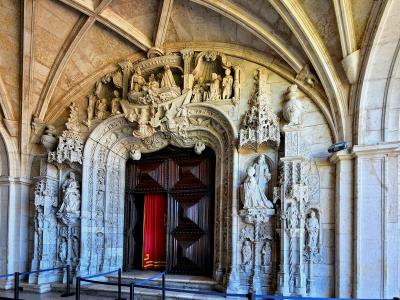
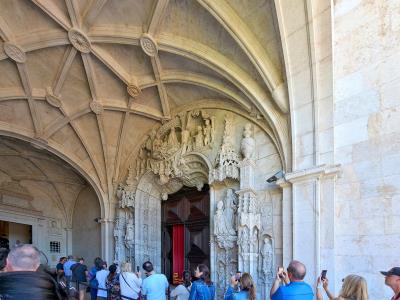
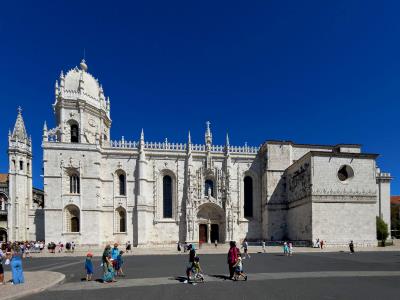
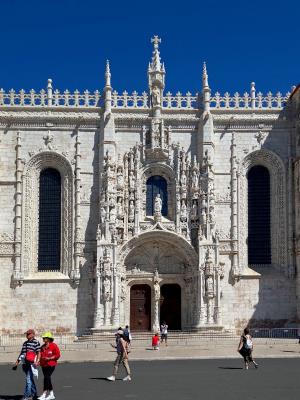
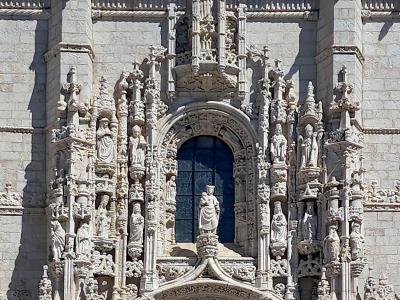


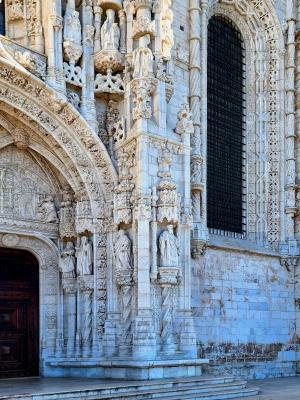
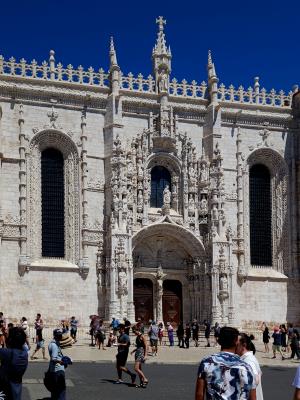
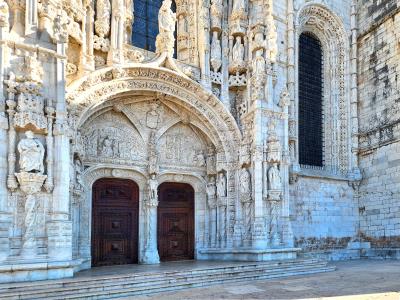

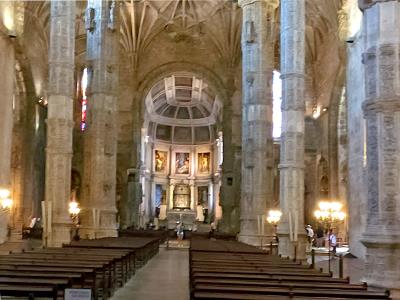
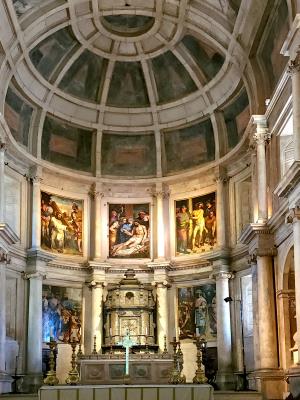

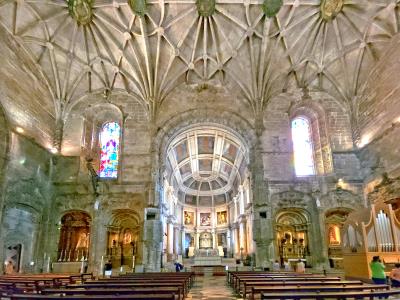
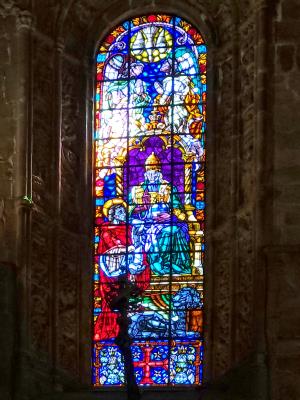


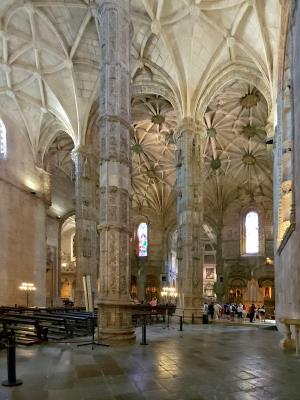
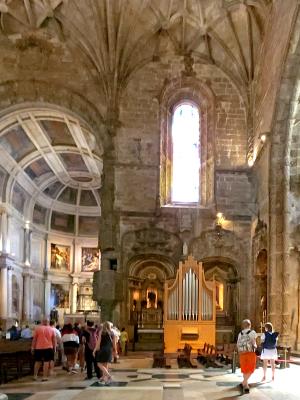

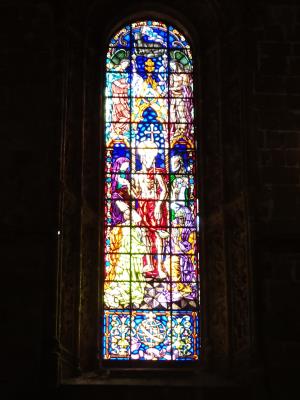



Madonna, infant Jesus and Joseph

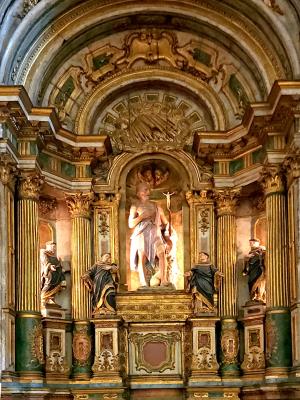
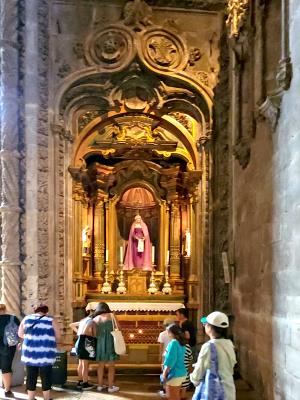
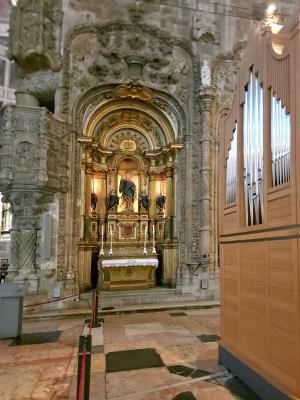
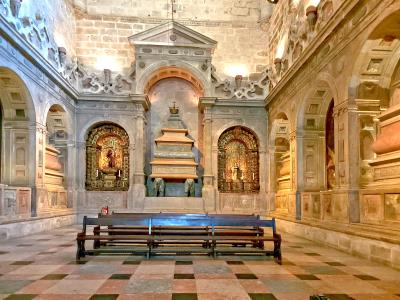

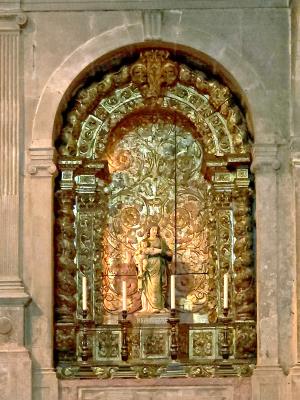
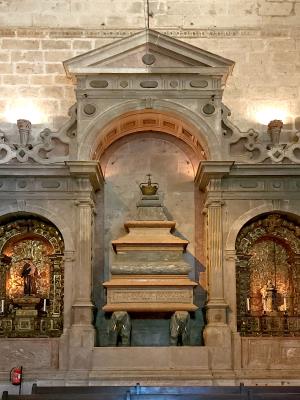
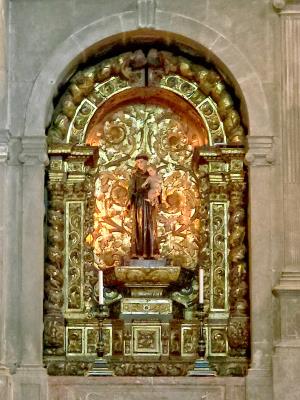

Altar Dourado
(Golden Altar)
